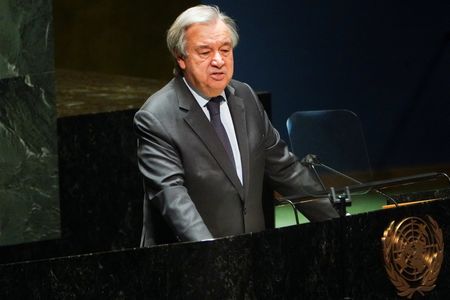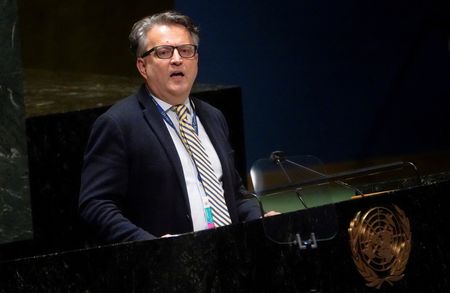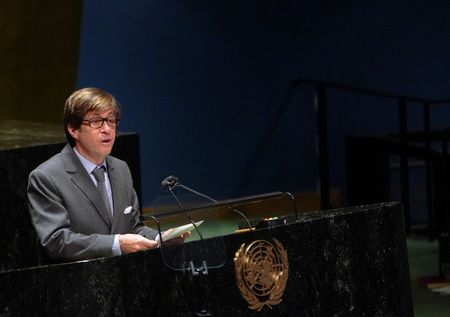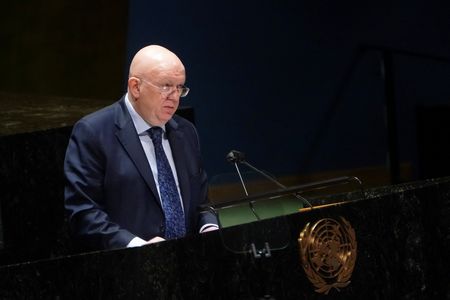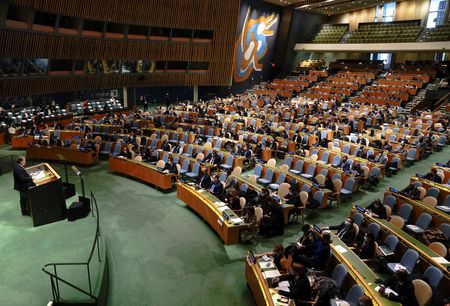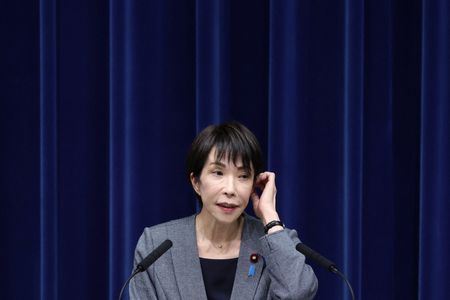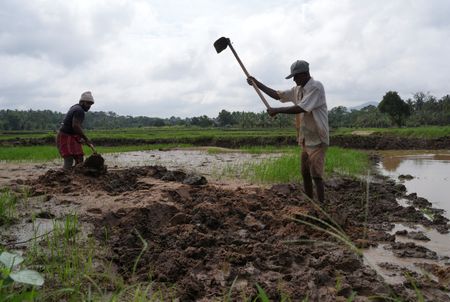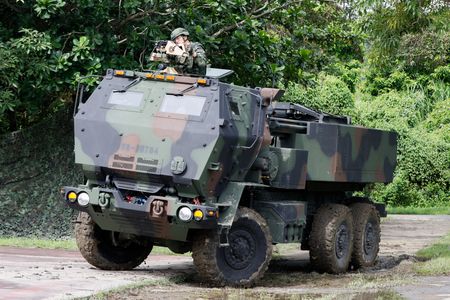By Michelle Nichols
UNITED NATIONS (Reuters) -The 193-member United Nations General Assembly began meeting on the crisis in Ukraine on Monday ahead of a vote this week to isolate Russia by deploring its “aggression against Ukraine” and demanding Russian troops stop fighting and withdraw.
The General Assembly will vote this week on a draft resolution similar to a text vetoed by Russia in the 15-member Security Council on Friday.
No country has a veto in the General Assembly and Western diplomats expect the resolution, which needs two-thirds support, to be adopted.
While General Assembly resolutions are non-binding, they carry political weight.
The United States and allies see action at the United Nations as a chance to show that Russia is isolated because of its invasion of neighboring Ukraine.
The draft resolution already has at least 80 co-sponsors, diplomats said on Monday.
More than 100 countries are due to speak before the General Assembly votes.
French U.N. Ambassador Nicolas de Riviere said: “No one can avert their gaze, abstention is not an option.”
Ceasefire talks between Russian and Ukrainian officials began on the Belarusian border on Monday as Russia faces deepening economic isolation.
U.N.
Secretary-General Antonio Guterres said he hoped the talks would “produce not only an immediate halt to the fighting, but also a path towards a diplomatic solution.”
He described Russian President Vladimir Putin’s decision on Sunday to put Russia’s nuclear deterrent on high alert as a “chilling development,” telling the General Assembly that nuclear conflict is “inconceivable.”
Ukraine’s U.N.
Ambassador Sergiy Kyslytsya described Putin’s order to put Russian nuclear forces on alert as “madness.”
“If he wants to kill himself he doesn’t have to use a nuclear arsenal, he has to do what the guy in Berlin did in a bunker in 1945,” Kyslytsya told the General Assembly, referencing Adolf Hitler’s suicide.
Guterres also warned about the impact of the conflict on civilians and said it could become Europe’s worst humanitarian and refugee crisis in decades.
“Although Russian strikes are reportedly largely targeting Ukrainian military facilities, we have credible accounts of residential buildings, critical civilian infrastructure and other non-military targets sustaining heavy damage,” he said.
Russia’s U.N.
Ambassador Vassily Nebenzia said Russia’s actions in Ukraine were being “distorted.” He told the General Assembly: “The Russian army does not pose a threat to the civilians of Ukraine, is not shelling civilian areas.”
(Reporting by Michelle Nichols, Editing by Rosalba O’Brien)

